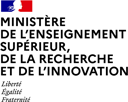SUSTAINABLE CONTROL OF PESTS AND DISEASES
Sponsored by





Claudio Loriatti, Italy ; Meritxell Perez-Hedo, Spain ; Mario D'Amico, Italy ; Maria Pappas, Greece ; José Carlos Franco, Portugal ; Josep Jaques, Spain ; Eduardo De La Pena, Belgium-Spain ; Brahim Chermiti, Tunisia ; Liora Shaltiez Harpaz, Israel ; Alexandra Schoeny, France ; Gaël Thébaud, France ; Andreas E. Voloudakis, Greece ; Miguel Aranda, Spain ; Olivier Pruvost, France ; Monica Höfte, Belgium ; Francesco Vinale, Italy
Climate change and globalization tend to modify the biotic and abiotic environment of pests and pathogens as well as their geographic distribution. This is conducive to pest and disease invasions and to the emergence of populations with new phenotypes, which in turn may jeopardize established control methods. These global changes stress the importance of monitoring in Integrated Pest Management (IPM) and the crucial need of adapting prevention and control strategies. Management strategies should also aim at being more environmentally-friendly and less detrimental to human health according to the one health concept. Thus, the symposium aims to address the challenges of working out innovative prevention and monitoring tools as well as sustainable pest and disease control methods in temperate and tropical cropping systems.
Main topics will be:
· Emerging pests and diseases
· Epidemiology and monitoring of pests and diseases
· Progress in early and specific detection (quantitative PCR, image analysis, models, …)
· Mechanisms of biological or molecular interactions in a biocontrol perspective (multitrophic networks, interactions between plant, pests, pathogens, natural enemies, microbiotas…)
· Biocontrol strategies and methods (biostimulants, defence elicitors, plant protection natural compounds, biocontrol agents, RNA vaccination ….)
· Role of soil and plant microbiota in plant defence
· Alternative methods for pest and disease control in protected crops (greenhouse, high tunnels…)
· Alternative methods for pest and disease control in field conditions
· Experience sharing on innovative strategies in temperate or tropical areas, and in annual or perennial crops
· Capacity building and implementation approaches
· Economic, social and environmental impact of alternative pest and disease control
If you need help for your abstract please contact :
HOW TO PREPARE ABSTRACTS AND PAPERS SUBMIT YOUR ABSTRACTS







